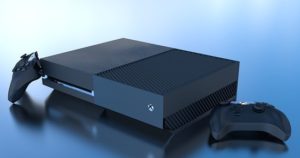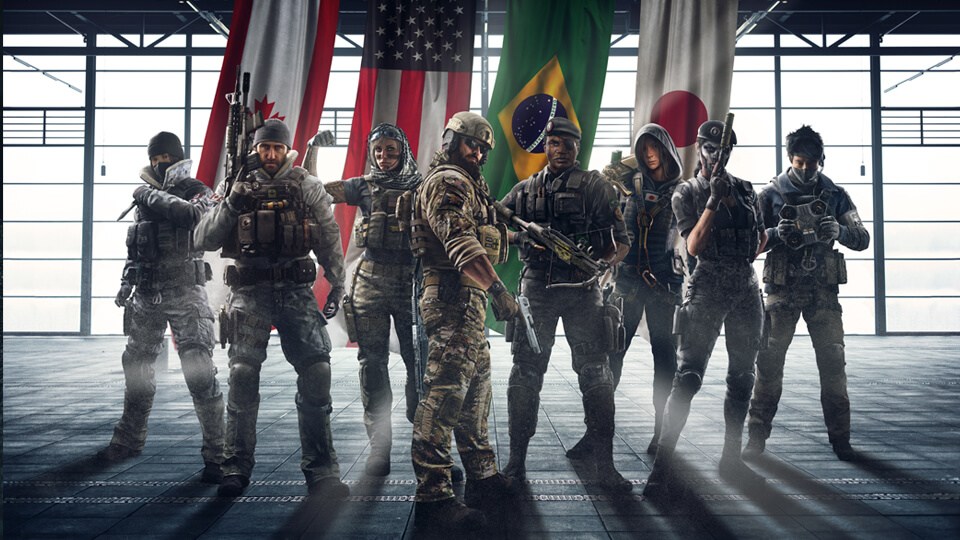The Xbox Experience
When I first got an original Xbox One as a birthday present somewhere in September 2015, I thought I was on top of the world in terms of gaming. I had something that had a vast library of triple-A titles, most of which it could run at least at a measly 30 frames per second. Xbox Live would let me talk to friends in party chat and so many other things I considered luxuries at the time, having only owned a Wii thus far.

I played on that very same Xbox for around 2 years and expanded my game library from the Microsoft store to around 100 titles. The best part was finding new games that I truly loved playing and experiencing for the first time, many of which I avidly partake in today.
I found gems like Battlefield 4, the Fallout Series, Forza and the oh-so-heavenly Halo games (Halo 2 was my favorite). I sunk many hours into them and so many other titles, eager to play something I had always dreamed of playing as a kid. Eventually, however, I started to get fed up with the Xbox and just the entire console area in general. So, after 2 years of playing on my Xbox, I got a mid-range gaming PC (GTX 1060 6GB and i5-7600K), and that entire experience was absolutely glorious.
However, it may not be so glorious for you. The reason I write this article is because I want you to know about the details regarding a switch in gaming platforms and the details of those platforms in general. If you are thinking about getting a gaming PC or an Xbox One without switching from something else, this may also be for you.
Why I Decided to Leave Xbox Behind
This is where I become a huge, fat meanie. While I loved the simplistic nature of “put in the disk and play”, I soon realized that was an extraordinary pipe dream due to Microsoft’s less-than-adequate software and UI on the Xbox One (and I am talking about the UI from 2015-2018).
To start, the entire UI was sluggish, and noticeably so. Whether it be switching from apps or swiping from panes of games and shortcuts, the entire UI was delayed from the moment I pressed a button to interact with it. This made the entirety of the Xbox navigation experience feel choppy, sluggish and just outright unpolished. And yes, while this was outside of games, you will be surprised how much you use the onboard UI to control things like game volume, headset communication and adding friends to your voice-chat party.
 Then, there was the issue of the controllers. My immediate problem with them was their incredible lack of durability. I used the original Microsoft Xbox One controllers, and while they felt quality in the hand, they were constantly having sticking buttons, broken joysticks and sometimes even headphone jack ports that would fall off from the inside, making an annoying rattling noise that made me inherit violent tendencies. To add insult to injury, most games just felt very clunky with a controller, as aiming with a mouse is much more precise and accurate compared to a joystick.
Then, there was the issue of the controllers. My immediate problem with them was their incredible lack of durability. I used the original Microsoft Xbox One controllers, and while they felt quality in the hand, they were constantly having sticking buttons, broken joysticks and sometimes even headphone jack ports that would fall off from the inside, making an annoying rattling noise that made me inherit violent tendencies. To add insult to injury, most games just felt very clunky with a controller, as aiming with a mouse is much more precise and accurate compared to a joystick.
Then, there was the fact that I had to pay money every month in order to be able to play online. This is what turned me off from the entire experience, as I was pretty much paying to use my own internet. This was combined with the constant crashes and downtime of Xbox Live, leaving me unable to even sign in to my profile. I knew that upon switching to PC, I would save around $120 a year on the multiplayer experiences that games had to offer.
Finally, there was the issue that I found was the most crucial, deciding reason for me to leave Xbox behind, and that is the games library. And yes, while Xbox held many triple-A titles and the amazing Halo series, there wasn’t much more than that. This was the bane of my Xbox gaming career, as I grew tired of the same-old FPS or yet another RPG that I played for over 400 hours, and that is coming from someone who loves both of those genres to death. But after I saw the impressive library of games on Steam, my interests switched over to the PC market.
I saw titles like Arma III, Skyrim Special Edition (With Increased Mod Support), Rimworld, Black Mesa, The Forest and so many others that appealed to my senses and tastes as a person who loves video games. They not only showed more variety than the games I was used to, but they were also cheaper and readily available on the bargain-showering annual Steam Summer Sale along with periodic, smaller sales offered every week.
So those were my reasons for seeking new horizons. Whether they were monetary, practical or simply a matter of taste, they all made me buy a gaming PC in July 2018. So what was that like?
The PC Gaming Experience
As the weeks passed, I picked out my parts, ordered them and waited impatiently for them to arrive, a process that seems faster in words than it is in first-hand experience. And they arrived, and boy was it a doozy to build, especially for me, as I had not done so before.
You can find our PC building experience here. After that was done, I realized the first pro of getting a powerful computer: You can use it for things other than gaming, too. While I am not a photo or video editor, both me and my family both used the computer for more productivity-based tasks such as emails, writing word documents, editing program files and storing media files, most of which was boosted by at least one newer component whirring away inside the case.
Nobody cares about that, though. “HOW ARE THE GAMES?” You all scream at me. Here is where I got sucked into the PC biome. Firstly, the library of games to be found on Steam, Origin, GOG and other vendors is absolutely massive, making Xbox’s collection of games look like a pesky microbe crawling around in your intestines by comparison. Whether it be triple-A games such as Battlefield 1, Fallout 4, or Arma III or indie games such as Seven Days to Die, Blackwake or Raft, I was floored by how much choice there was, with the games that were also on consoles exhibiting better graphics and much higher framerates on my computer.

I was used to playing Tom Clancy’s Rainbow Six Siege at 45 frames per second with maxed out settings on the Xbox, but the PC handled it at around 80-100 FPS with even better anti-aliasing settings. Fallout 4 was a laggy, stuttery mess on the console, but it was refined and fluid on the PC (although not always being that way in the past). Furthermore, I loved that many of the games I had grown to love had inherited mod support or more mods in general thanks to the flexibility of Windows.
Speaking of which, the OS allowed me to tweak the .ini files (configuration files) of games that I wanted to adjust, whether it be to get better framerates or to remove a pesky graphics setting that did not appeal to my personal preferences. That’s another thing, you cannot tweak the core graphical settings of games on consoles; they all come locked at one particular frame rate due to one specified graphics setting. On the PC, you can adjust everything you want to get a better frame rate and visual appearance.
As for the weaknesses of PC gaming, I noticed that there was much more room for error if you are the type of person to tweak settings and game properties, but that is not really the platform’s fault. The communities of games also failed to differ, even though I realize that is a human problem, not a computer one.
Let’s not forget to mention the biggest factor at play here, and that is the price. $1200 for the PC and an extra $200 for the monitor is not an easy pill to swallow, as it was especially for the then-desiccated funding for the build. And yes, building was also a pain in the royal ass. Both of these things can pose as real repellents for those interested in getting a good platform for gaming, but as soon as both I and my dad overcame that obstacle, we immediately realized the benefits that we gained from it.
So was it worth the switch?
In my opinion, the answer is yes. Sure, the Xbox was fun while it lasted, but it never came close to the enjoyment, immersion and mere economic value of my gaming PC. The computer offered options, visuals and a library of games that are not present on either the PS4 or Xbox One.
Combine this with the other uses of a powerful computer such as video/photo editing, productivity and other tasks, and you have (in my opinion) a better overall investment compared to that of a console.
 I am very happy and fortunate that I have a gaming PC, and I will probably never look back to consoles because I am no longer interested in inferior graphics, visuals and game libraries. But that is my experience, and I share it with you because I want you to know more about the different gaming platforms at your disposal.
I am very happy and fortunate that I have a gaming PC, and I will probably never look back to consoles because I am no longer interested in inferior graphics, visuals and game libraries. But that is my experience, and I share it with you because I want you to know more about the different gaming platforms at your disposal.
But what do you think of PC gaming, and how does it compare to console gaming? How is this article in general? Let me know in the comments. I am always interested in improving my writing and learning more about the thoughts of individuals.
I’m probably completely different because for years I played PC games and switched to console games years ago. One of the reasons I don’t like PC games is because I think of using my computer as work. Meaning, I run an online business and work on my business about 8 hours a day.
I do have to admit that the graphics on PC are much better. And, I do have to admit that the user interface on Xbox is sluggish, though.
But, what about PS4 do you find stuff to be sluggish on there too? I believe they have a faster FPS and better hardware.
Garen,
Thanks for sharing your gaming experience. It reminded me of why we built this PC (see the post New PC Build – Gaming PC For Fun… And Work). Not having had a first-hand experience with the PS4, makes it hard to comment on its capabilities, although it appears to be a quite capable gaming console.